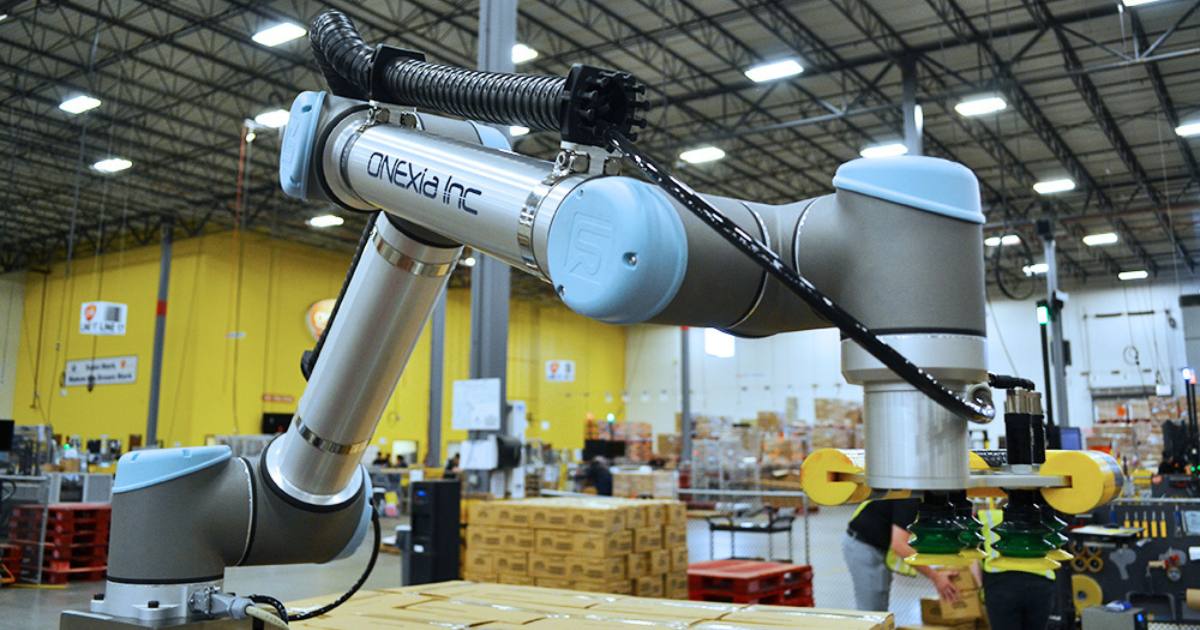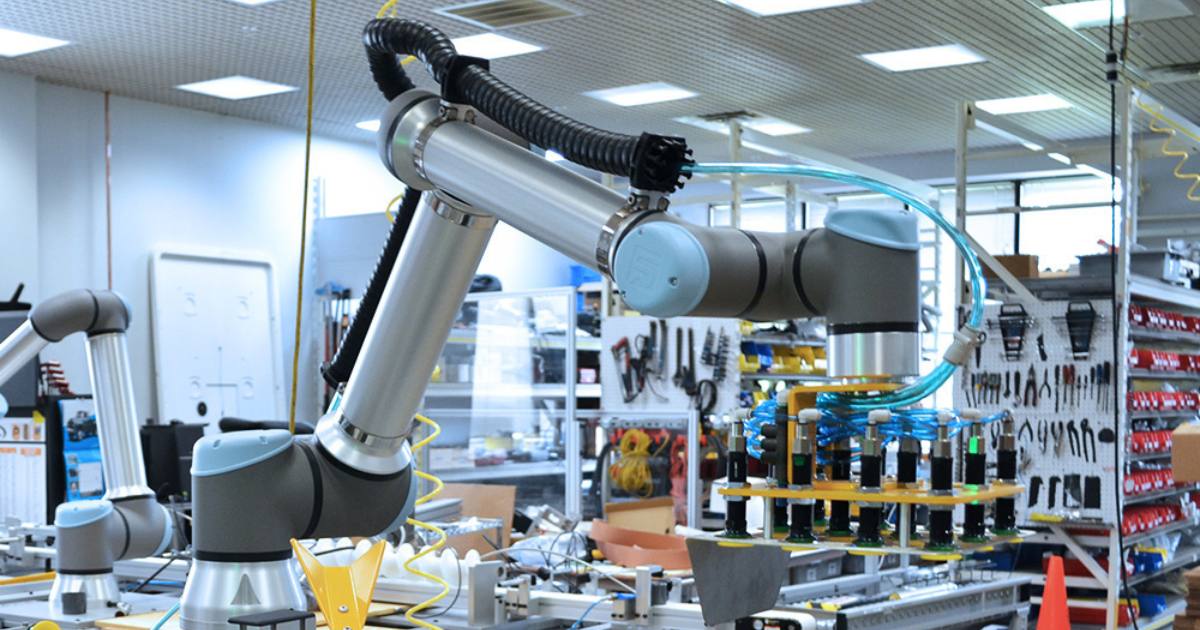The manufacturing industry stands on the cusp of a revolutionary shift, with manufacturing process automation heralding a new era of productivity and efficiency. As business leaders and facility managers in small to mid-sized manufacturing companies are acutely aware, labor shortages and retention issues have become significant hurdles. However, the advent of automation offers a beacon of hope, potentially resolving these challenges with innovative and strategic applications of technology.
Understanding the Labor Conundrum
At first glance, the current state of the labor market within the manufacturing sector seems to be an enigma. On one hand, there is a burgeoning pool of candidates ready to dive into the manufacturing fray, yet on the other, the availability of positions fails to meet this surging interest. In fact, research published by The Manufacturing Institute showed that 93% of respondents struggled to find skilled workers. This apparent contradiction, however, unravels when scrutinized, revealing a deep-seated discord between the nature of available manufacturing jobs and the aspirations of today’s workforce.
The modern job seeker is on the hunt for a career path that is not only dynamic and intellectually stimulating but also provides a trajectory for professional advancement. They shun the prospect of dreary, repetitive work that offers little in terms of skill development or job satisfaction. In this context, manufacturing process automation emerges as a pivotal innovation. It is seen as the key to unlocking a future where the workforce can engage with the industry in roles that are both fulfilling and progressive.
Manufacturing process automation with custom machines, collaborative robots, and palletizers promises to bridge this gap by deploying technology to take on the repetitive, tedious tasks, thereby sculpting a new landscape where human workers can focus on more complex, inventive, and rewarding duties. This shift not only caters to the desires of ambitious job seekers but also equips the manufacturing industry to ascend to unprecedented levels of efficiency and productivity.
Automation: A Dual-Edged Sword for Labor and Efficiency
Manufacturing process automation represents the strategic employment of advanced technologies to execute functions traditionally performed by human workers. This progressive approach envelops a broad spectrum of implementations, ranging from the overarching umbrella of factory automation to the intricacies of CNC machine automation. Within this realm, palletizing robots stand as the best way to automate an end-line production process, revolutionizing the industrial environment by tackling the uniformity and drudgery of repetitive tasks head-on.
As robots and automated systems assume monotonous, labor-intensive tasks, the human workforce is afforded the opportunity to engage in more intellectually stimulating and purpose-driven roles. This recalibration of tasks means that workers are now tasked with overseeing and maintaining automation systems, engaging in quality control, and performing critical thinking roles that machines are ill-equipped to handle.
This evolution in manufacturing extends far beyond a simple substitution of human effort; it signifies a fundamental transformation in the allocation and nature of labor within the industry. Automation technologies are not just stopgap solutions to the immediate problem of labor shortages; they serve as catalysts for an industrial renaissance.
Economic Viability for Small and Medium-Sized Enterprises
For smaller companies, the integration of robotics and automation integrators is not just a matter of staying competitive; it’s a financial imperative. Robotics automation and palletizing automation can lead to significant labor cost savings, an advantage that can be pivotal for the survival and growth of small to mid-sized manufacturers.
The Technological Vanguard of Automation
For small to medium-sized enterprises, particularly in the manufacturing sector, the adoption of robotics and collaboration with expert automation integrators is far more than a strategy to keep pace with industry competitors; it is a crucial economic necessity. The strategic implementation of robotics automation, including sophisticated palletizing automation systems, represents a transformative investment that can result in substantial reductions in labor costs. These savings are not marginal but rather significant enough to potentially alter the financial trajectory of a company.
For these smaller entities, where resource allocation must be judiciously managed, such cost efficiencies gained from automation can be a decisive factor in their ability to not only sustain operations but also to invest in future growth and innovation. The leverage gained through this technology can empower these manufacturers to redirect their financial resources towards other strategic initiatives, such as product development or market expansion, thereby solidifying their presence and competitive stance in a rapidly evolving marketplace.
Defining Robotic Process Automation
Robotic process automation, commonly abbreviated as RPA, is a term that frequently encounters misconceptions and misunderstandings. In the realm of manufacturing, robotic process automation is a sophisticated technological approach that employs advanced software, enhanced with the capabilities of artificial intelligence (AI) and machine learning algorithms, to undertake a variety of tasks. These tasks are typically characterized by their high-volume, repetitive nature, which traditionally necessitated human intervention.
RPA is adept at streamlining repetitive processes, which range from the simplicity of routine data entry operations to the more intricate aspects of complex manufacturing procedures. By leveraging RPA, manufacturers can automate entire workflows that significantly improve efficiency and consistency, allowing human workers to focus their talents on more nuanced and strategic activities within the manufacturing pipeline.
The Spectrum of Automation
Understanding the types of automation is crucial for business leaders contemplating this shift. There are essentially three levels: fixed automation, programmable automation, and flexible automation. Each comes with its own set of advantages and can be integrated into different stages of the manufacturing process.
The Role of Automation Integrators
Automation integrators play a critical role in this transition. They are the bridge between the manufacturing needs of a company and the complex technological solutions provided by robotics automation. These experts analyze manufacturing challenges and design automation systems that optimize production efficiency and quality.
Palletizing Automation: A Case Study in Efficiency

One of the most visible successes of manufacturing process automation is in the realm of palletizing. Palletizing robots have revolutionized the way products are handled, sorted, and packaged. These robots work tirelessly, with precision and consistency that is unmatched by human labor, ensuring that products are ready for shipment faster and with fewer errors.
Looking to the Future
The future of labor in manufacturing is one where human ingenuity and robotic efficiency coexist in a balanced ecosystem. By embracing manufacturing automation, companies are not only addressing the immediate concerns of labor shortage and retention but are also investing in a future where their human workforce can engage in more strategic, creative, and technically demanding roles.
Robots are Reshaping the Job Landscape
As we look to the future, it’s evident that the harmonious integration of human and machine labor is not just an ideal but an achievable reality that promises to sustain the industry for generations to come.
Manufacturing process automation stands as the answer to the labor shortage and retention issues plaguing the manufacturing industry. By taking over repetitive tasks, robots are reshaping the job landscape, allowing human workers to focus on more engaging and less monotonous work. For small and mid-sized companies, the economic benefits of adopting such technologies are clear, with substantial savings in labor costs and improvements in production efficiency.
ONExia Inc is a robotics integrator, custom machine builder, and industrial distributor based in Exton, PA that specializes in manual process automation. We assist manufacturers of all sizes in increasing throughput with cutting-edge technology. Among these cutting-edge technologies is our custom machines and robotic palletizer, which automates the packing and palletizing process. Contact Us today to speak with us and learn more.

